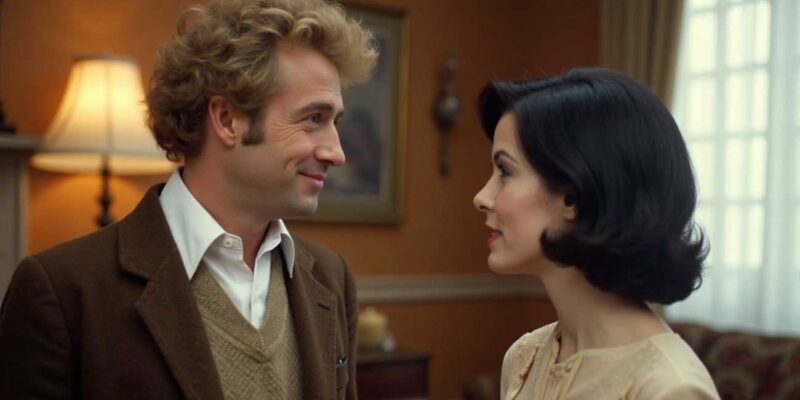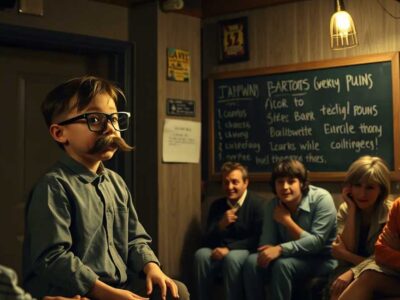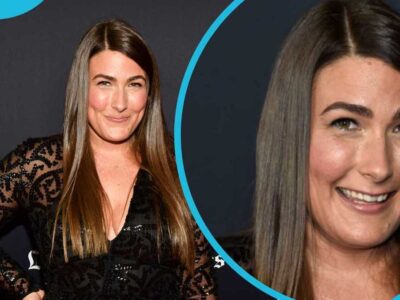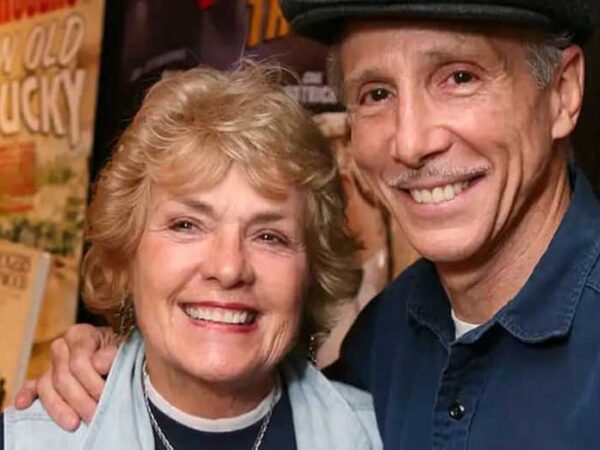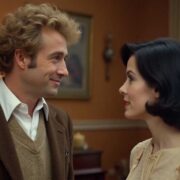Most people know Gene Wilder as the eccentric chocolatier from “Willy Wonka & the Chocolate Factory,” but few remember Mary Joan Schutz, the woman who stood beside him during his rise to stardom. Her story isn’t splashed across magazine covers or documented in tell-all biographies, yet she played a crucial role in shaping one of comedy’s most beloved figures.
Mary Joan Schutz lived a life that bridged two worlds—the quiet dignity of Midwestern values and the glittering uncertainty of 1960s Hollywood. Her seven-year marriage to Gene Wilder coincided with some of his most memorable performances, making her an unsung part of entertainment history.
Early Life and Midwest Roots
Picture Iowa in 1930—dust storms brewing on the horizon, families gathering around radio sets, and a baby girl named Mary Joan taking her first breath on January 12th. Her parents, Matthew Lynn Schutz and Katherine Marie Hickey, couldn’t have known they were raising someone who would one day walk red carpets in Hollywood.
The Schutz household carried the weight of immigrant dreams. Matthew’s father, Ferdinand Joseph Schutz, had crossed an ocean from Belgium, seeking the American promise. On her mother’s side, Irish roots ran deep through the Hickey lineage, bringing stories of resilience that would echo through generations.
Those Depression-era years weren’t kind to anyone, but they forged something special in Mary Joan. She learned to find joy in simple things and strength in quiet moments—lessons that would prove invaluable when cameras started flashing and reporters came calling decades later.
A Fateful Meeting in the 1960s
Sometimes the most important introductions happen through family. That’s exactly how Mary Joan Schutz met Gene Wilder—through his sister, who probably had no idea she was playing matchmaker for Hollywood history.
The timing couldn’t have been more perfect. Gene was riding the wave of New York’s experimental theater scene, where actors like him were redefining what it meant to be authentic on stage. He wasn’t yet the household name he’d become, but there was something magnetic about his energy, something that drew people in.
Mary Joan wasn’t just another single woman in the city. She came with her own story—a daughter named Katharine from a previous relationship, which meant any man in her life would need to embrace not just her, but the family she’d already built. Gene didn’t hesitate.
Marriage and the Hollywood Years (1967-1974)
On October 27, 1967, Mary Joan Schutz became Mrs. Gene Wilder. The ceremony marked the beginning of what many considered one of Hollywood’s more stable marriages during a particularly turbulent era in entertainment.
Gene immediately embraced his role as stepfather to Katharine, legally adopting her and giving her his surname. This gesture demonstrated the genuine family bond that formed between the three of them.
Supporting a Rising Star
The late 1960s and early 1970s proved pivotal for Gene Wilder’s career. Mary Joan stood by his side as he took on career-defining roles in “The Producers” (1967) and “Willy Wonka & the Chocolate Factory” (1971).
Unlike many Hollywood wives of the era, Mary Joan chose to maintain a relatively low profile. She attended premieres and industry events when necessary but preferred to focus on creating a stable home environment for her family.
Her approach reflected a deliberate choice to prioritize family over fame. While other celebrity spouses sought the spotlight, Mary Joan understood that her husband’s success required a strong foundation away from the cameras.
Navigating Hollywood’s Social Scene
Being married to Gene Wilder meant navigating Hollywood’s complex social hierarchy. Mary Joan handled these challenges with grace, earning respect from industry insiders for her authenticity and down-to-earth nature.
She formed friendships with other actors’ wives but never lost sight of her Midwestern values. This balance helped her maintain perspective during both the highs and lows of her husband’s career.
The End of an Era
By 1974, cracks began to show in the Wilder-Schutz marriage. Reports suggest that Mary Joan suspected Gene of having an affair with his “Young Frankenstein” co-star Madeline Kahn, though the exact details remain private.
The divorce proceedings were handled with discretion, reflecting both parties’ desire to protect their daughter Katharine from unnecessary publicity. After seven years of marriage, they officially separated, ending what had been considered one of Hollywood’s more solid unions.
Life After the Spotlight
Following her divorce from Gene Wilder, Mary Joan Schutz deliberately stepped away from public life. She focused on raising Katharine and rebuilding her personal identity separate from her famous ex-husband.
The transition wasn’t easy. Divorce in the 1970s carried different social implications than it does today, particularly for women who had been married to public figures. Mary Joan handled these challenges with the same quiet dignity that had characterized her approach to fame.
Unfortunately, the divorce created lasting complications in the family dynamic. Katharine became estranged from her adoptive father, a rift that would persist for decades and cause Gene considerable pain.
Legacy and Lasting Impact
Mary Joan Schutz’s influence on Gene Wilder’s life and career cannot be overstated. During their marriage, she provided the stability and support that allowed him to take creative risks and develop his unique comedic voice.
Her story also represents the experiences of countless women who found themselves connected to fame through marriage. She navigated the challenges of being a Hollywood spouse while maintaining her own identity and values.
Today, Mary Joan Schutz’s legacy lives on through her daughter Katharine, who became an accomplished actress in her own right. Though she chose privacy over publicity, her impact on one of comedy’s greatest talents ensures her place in entertainment history.
Conclusion
Here’s what strikes me most about Mary Joan Schutz’s story: she chose love over fame, family over fortune, and privacy over publicity. In an era when celebrity wives often became celebrities themselves, she deliberately stepped back from the spotlight.
That choice cost her recognition, sure. But it also gave Gene Wilder something precious—a home base where he could be Jerome Silberman instead of a movie star, a place where laughter came naturally instead of on cue.
Mary Joan Schutz may not have sought the spotlight, but her influence on American comedy runs deeper than most people realize. Sometimes the most important stories are the ones whispered rather than shouted, lived rather than performed. Her story is one of those—quiet, powerful, and absolutely worth remembering.


